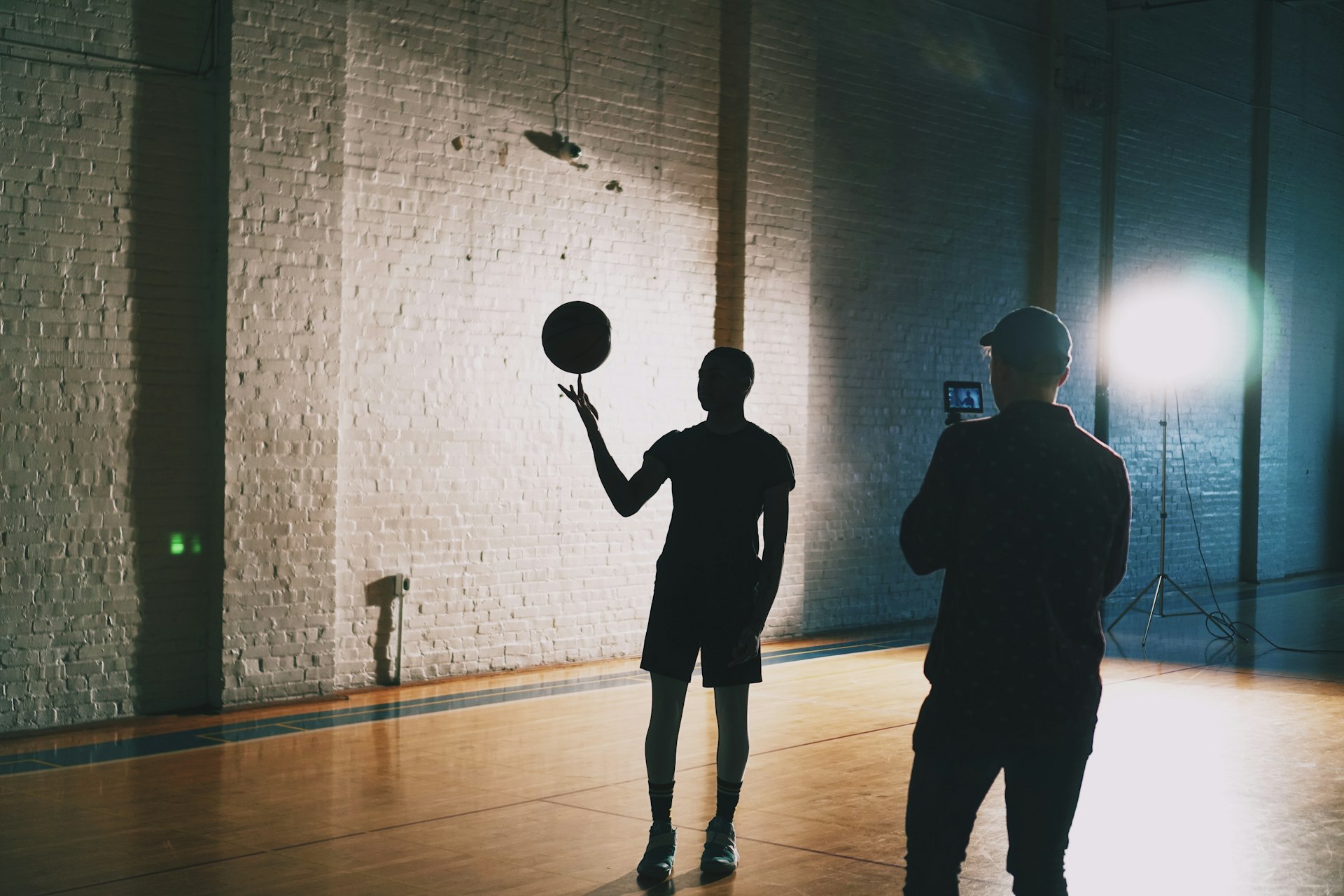Unlocking Potential: Comprehensive Mental Resilience Training for Young Athletes

Photo by Will Colavito on Unsplash
Introduction to Mental Resilience Training for Young Athletes
Mental resilience is the capacity to adapt, recover, and thrive despite challenges, setbacks, or pressure. For young athletes, developing this resilience is vital-not only for their performance on the field but also for personal growth and overall well-being. In today’s competitive sports environment, athletes face increasing expectations from coaches, parents, and peers. Equipping them with mental resilience skills can make all the difference, enabling them to navigate adversity, stay motivated, and enjoy long-term success in sports and life [1] .
Why Mental Resilience Matters in Youth Sports
Young athletes frequently encounter setbacks, injuries, tough losses, and internal pressures to perform. Without the right mental tools, these challenges can lead to frustration, burnout, or even withdrawal from sports. Mental resilience training addresses these obstacles directly by teaching athletes how to manage emotions, cope with stress, and maintain focus under pressure. The benefits of mental training extend far beyond sports, positively influencing academic performance, relationships, and self-esteem [2] .
Core Elements of Mental Resilience Training
1. Positive Self-Talk
Teaching athletes to replace negative thoughts with constructive, positive self-talk is foundational. By encouraging internal dialogues like “I can handle this challenge,” young athletes boost their confidence and perseverance. Parents and coaches should model and reinforce this practice, reminding athletes to refocus on what they can control instead of dwelling on setbacks [1] .
2. Growth Mindset
Instilling a growth mindset-where challenges are viewed as opportunities for learning-helps athletes see setbacks as temporary and surmountable. This mindset reduces fear of failure, encourages risk-taking in practice, and fosters a love for continuous improvement [1] .
3. Goal Setting
Clear, realistic goals provide purpose and motivation. Athletes should set objectives that are challenging yet achievable, tailored to their skill level and personal ambitions. Regularly reviewing progress and celebrating small wins helps maintain momentum and builds a sense of accomplishment [3] .
4. Emotional Regulation and Mindfulness
Learning to manage intense emotions-such as anxiety before a big game or frustration after a mistake-is crucial. Techniques like deep breathing, visualization, and mindfulness exercises can help athletes stay calm, present, and focused under pressure. These practices also teach athletes to bounce back quickly from errors, reducing the risk of prolonged slumps [2] .
5. Resilience Through Adversity
Coaches and parents should emphasize that setbacks are a normal part of sports and life. Teaching athletes to view adversity as a growth opportunity fosters perseverance and tenacity. Encouraging open discussions about disappointments and strategies for recovery strengthens an athlete’s resolve over time [1] .
How Sports Psychologists Support Youth Resilience
Sports psychologists play a vital role by providing young athletes with a safe space to discuss fears, anxieties, and frustrations. Through one-on-one sessions, psychologists help athletes develop coping strategies for stress, enhance focus, and cultivate a positive mindset. They often utilize evidence-based interventions, such as guided imagery and relaxation techniques, to help athletes master their psychological game [2] .
For example, a swimmer might use visualization to mentally rehearse the perfect dive, transforming nervousness into confidence before competition. These skills are transferable, helping athletes manage academic stress and interpersonal challenges as well.
Implementing Mental Resilience Training: Step-by-Step Guidance
To effectively introduce mental resilience training, consider the following steps:
- Education and Awareness: Begin by educating athletes, parents, and coaches on the importance of mental toughness. Workshops or seminars led by sports psychologists can provide foundational knowledge and practical tools [3] .
- Skill Development Sessions: Integrate mental skills practice into regular training. Dedicate time for visualization, mindfulness exercises, and positive self-talk routines. Encourage reflection after both successes and setbacks.
- Personalized Coaching: Offer individualized support for athletes facing unique challenges. Sports psychologists or trained coaches can tailor interventions based on an athlete’s specific needs, promoting greater buy-in and effectiveness.
- Team-Building Activities: Foster a supportive, trust-based team environment through collaborative exercises. Teamwork and open communication are essential for building collective resilience [3] .
- Parental Involvement: Parents play a critical role in reinforcing mental skills at home. Encourage open dialogue about emotions, setbacks, and strategies for recovery. Model resilience by sharing your own experiences with overcoming adversity.
Real-World Examples and Success Stories
Consider a young soccer player who struggled with pre-game anxiety, leading to inconsistent performances. With guidance from a sports psychologist, she learned deep breathing and visualization techniques, gradually gaining confidence and composure. Over a season, her ability to manage pressure improved, and her performance stabilized, translating to better results and greater enjoyment of the sport [2] .
Similarly, teams that incorporate regular mental resilience exercises report improved focus, stronger camaraderie, and faster recovery from losses. These outcomes are not limited to elite athletes; young participants at all levels can benefit from structured mental skills training [1] .
Challenges and Solutions in Mental Resilience Training
One common challenge is the stigma surrounding mental health and psychological training in sports. Some athletes may resist mental skills work, perceiving it as a sign of weakness. To overcome this, coaches and leaders should normalize mental training as a standard part of athletic development, just like physical conditioning.
Another hurdle is the lack of access to qualified professionals. If a licensed sports psychologist is not available locally, consider online resources, virtual workshops, or reputable books on sports psychology. Many organizations and governing bodies now offer mental skills programs online.
Alternative Approaches and Additional Resources
If direct access to sports psychologists is limited, athletes and their support networks can still make significant progress using self-guided resources. Search for “youth sports mental training programs” or “mental skills for young athletes” via trusted sports organizations, local community centers, or school counselors. The American Psychological Association (APA) and national athletic associations often publish articles and guides on youth sports psychology.
Parents and coaches can also collaborate to form peer support groups, share best practices, and invite guest speakers to discuss mental resilience topics. These grassroots efforts help build a culture of mental well-being in youth sports communities [5] .

Photo by Patricia Prudente on Unsplash
Taking the Next Steps: How to Access Mental Resilience Training
For those interested in introducing or expanding mental resilience training for young athletes, consider the following:
- Contact your local sports clubs to inquire about existing mental skills workshops or request that they introduce such programs.
- Speak with your child’s coach or athletic director about integrating mental resilience exercises into practice routines.
- Consult your school counselor or physical education department for recommendations on sports psychologists or mental skills trainers in your area.
- When seeking specialized support, search for certified sports psychologists using the official American Psychological Association (APA) directory or state licensure boards.
- Explore reputable online platforms that offer virtual mental skills training if in-person options are limited.
Remember, mental resilience is a learned skill. With commitment and the right support, young athletes can develop the mental strength to thrive both on and off the field.
References
- PakPeds (2023). Building Mental Toughness for Young Athletes.
- The Mental Game (2023). How Sports Psychologists Build Mental Resilience in Youth.
- The Performance Pursuit Consulting (2022). 3 Mental Skills to Build Resilience for Athletic Success.
- Upswing Foundation (2023). How Youth Sports Can Support Mental Well-Being.
MORE FROM getscholarships.net













